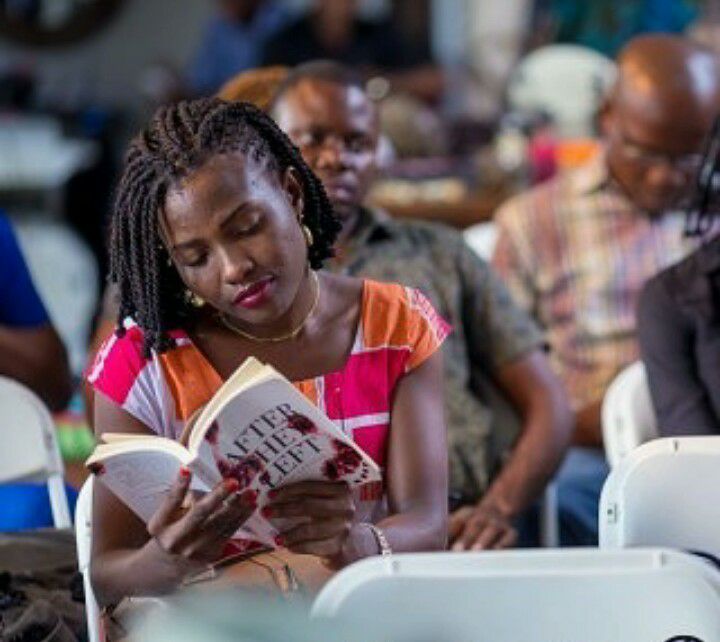
Hey Sparkle Writers! It’s time for another #WriterSpotlight. Today we have Ijeoma Ucheibe, popularly known as Bagus Mutendi. She is a literary critic and she has some great advice for writers who want to publish books and write stories.
You’ll definitely enjoy this one!
Hello Ijeoma. Can you please tell us a bit about yourself?
Ijeoma was born in Kano. She speaks Igbo, Hausa, Yoruba, a smattering of French, German and bad Spanish. She is also a corporate commercial lawyer who writes academic papers from time to time. She also runs a literary blog called Bagus Mutendi where she talks about literature and the arts with a focus on Africa. She’s also the publicist for the hugely popular #BookOnReview show which talks about African Literature and airs on Classic FM 97.3 (a prestigious radio station) every Saturday 9pm. She also talks books on Nigerian Info FM, Lagos on the #TheBookClub with Katherine Obiang (On-Air Personality, Nigerian Info FM/ Actress) and Abigail Anaba (author, Sector IV) on Thursdays 9.30 pm.
You’re known by the name Bagus Mutendi. What does that name mean?
It’s a childhood nickname I grew up with. It’s a mashup of Indonesian & Zimbabwe names and simply means precious warrior.
Have you always known that you will be a literary critic?
It wasn’t so obvious in the very early years, but as I negotiated through puberty, I knew that it would not be enough to just read books. I began to feel that I should have something to say about these books. As you grow older, your opinions about the things you feed your eyes on begin to expand, your tastes evolve, and where you feel something should have been written better, or not written at all, you find it hard keeping that feeling to yourself.
Can you tell us some of the best books you’ve ever read or critiqued?
This is a really difficult situation to be in, I’ll take books over chocolate any day, but since you asked, I’ll say; Dick Francis’ “Shattered”, Noviolet Bulawayo’s “We need New Names”, H. Rider-Haggard’s “King Solomon’s Mines.”
As a blogger who focuses mainly on the literary arts, can you tell us how you started on this journey?
This journey has been in my head for over 5 years but procrastination has always gotten in the way till March 2016 when I decided to get serious about it.

In recent times, we have seen a rise in African authors who are coming up with quality content for the African audience. What will you say is responsible for this development?
Over time, our narratives have evolved. The themes have changed, it’s not just about war and poverty anymore. The stories that millennials have to tell are different from those of older generations, and this helps for diversity in narration. There has been a proliferation in number of writers over the years, and the dense population of creatives in Africa has led to an increase in the quality. With more competition, you have no choice but to churn out a good story if you do not want to get swallowed up.
As a literary critic, what are the things you look out for in a book for it to qualify as a good book in your eyes?
For me, I look at the originality of the theme. Novelty appeals to me, and since I usually find my nose buried in lots and lots of books, the writing should either tackle a new theme, or offer a fresh perspective to an old theme before I can say I’m impressed. Beyond that, I can’t get past the first hint of a cliché. The African continent is overripe with an abundance of narratives, so I don’t see the need to waste my time on over-flogged storylines.
What will you say is the biggest challenge the writers and authors face in the country?
There are a number of prevalent challenges, but for me, the biggest challenge to surmount is locating a vibrant and active target audience. Much is made about the fact that “we don’t read”. In my opinion, Nigerians read, but the writers need to work on getting their art across.

What are some of the pitfalls writers need to avoid on their journey to becoming published?
Writers should eschew shoddy storytelling and editing as much as possible. No publisher wants to have anything to do with a creative who cannot properly put his work together. Again, writers should avoid being unnecessarily selective when it comes to the desired platforms on which they want to be published. Yes, some platforms come with bigger reputations, but what is most important is that your craft is out there.
The state of the publishing industry leaves a lot to be desired and many writers are opting to be self-published. What do you think can be done to change this narrative?
There needs to be a lot more sensitization on the relevance of publishing houses. Then again, publishing houses should make their deals and conditions more flexible. Sure enough, the economy is volatile, but Art should not always be sacrificed on the altar of convenience. It would also be helpful if publishers engage the services of scouts or agents, who would go out there and sniff around for good literature. That way, Talent meets Opportunity, because for the most part, that’s the major drawback; poor marketing!
What advice will you give to any writer who wants to become a bestselling author?
My words are few, but I hope they resonate: Keep pushing, strive to get your voice heard, speak even if no one appears to listen.
Should we expect a book from you in the nearest future?
Well, you never say never. Fingers crossed.
If you know any writer who you feel should be featured on our #WriterSpotlight segment or you are that writer, please send an email to [email protected].
